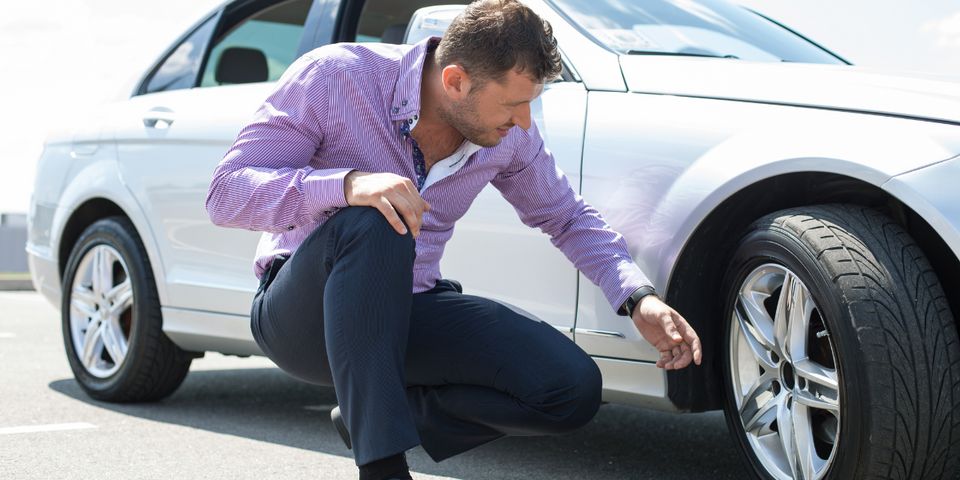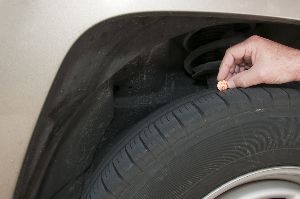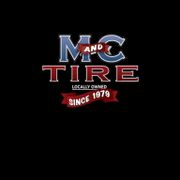
Your tires support your entire vehicle, allowing it to travel long distances safely. Tread is the rubber around the perimeter of the tire that makes contact with the road. The depth and condition of your tread can tell you a lot about your vehicle's tires and when new ones may be needed. Here's what you need to know about measuring tread and identifying wear patterns and risks to stay safe on the road.
How Can You Measure Tread?

The industry standard for tread depth is 6/32 of an inch or deeper, but it's generally agreed that you can wait until 2/32" before a replacement is needed. New tires usually come with 10/32" or 11/32" depth or even deeper, but the tread will eventually start to wear out. To ensure adequate contact with the road, you need to measure the depth regularly, such as when you fill the tires with air or have the oil changed.
The most effective way to measure tread is with the penny test. Simply insert a penny into the tread, upside-down and facing you. If any part of Lincoln's head is concealed by the tread, it is still above 2/32". However, if you can see all of Lincoln's head, the tread has worn down too low, and it's time to replace the tires.
How Can You Identify Patterns and Risks?
The patterns in your tread indicate what is causing the wear. For example, underinflation causes wear on the edges of the tread pattern, while overinflation causes wear in the middle. Scallops or cups in the tread can be signs of problems with the shocks and struts. Feathering occurs when the tread ribs are smoother on one side and sharper on the other. This is often an indicator that the wheel alignment needs to be adjusted to bring the tires into better balance. Paying attention to these patterns can help you select more tailored maintenance to protect your vehicle and keep you safe on the road.
If your tire tread is no longer safe, contact M & C Tire in Kalispell, MT. Since 1979, they have provided a comprehensive selection of tires, as well as wheel alignments, oil changes, brake repairs, and other automotive services. Their TIA-certified technicians work on all vehicle makes and models, and they will ensure you find the right tires for your driving needs and budget. Call (406) 752-9662 to request a quote, or visit them online to explore their inventory.
About the Business
Have a question? Ask the experts!
Send your question

